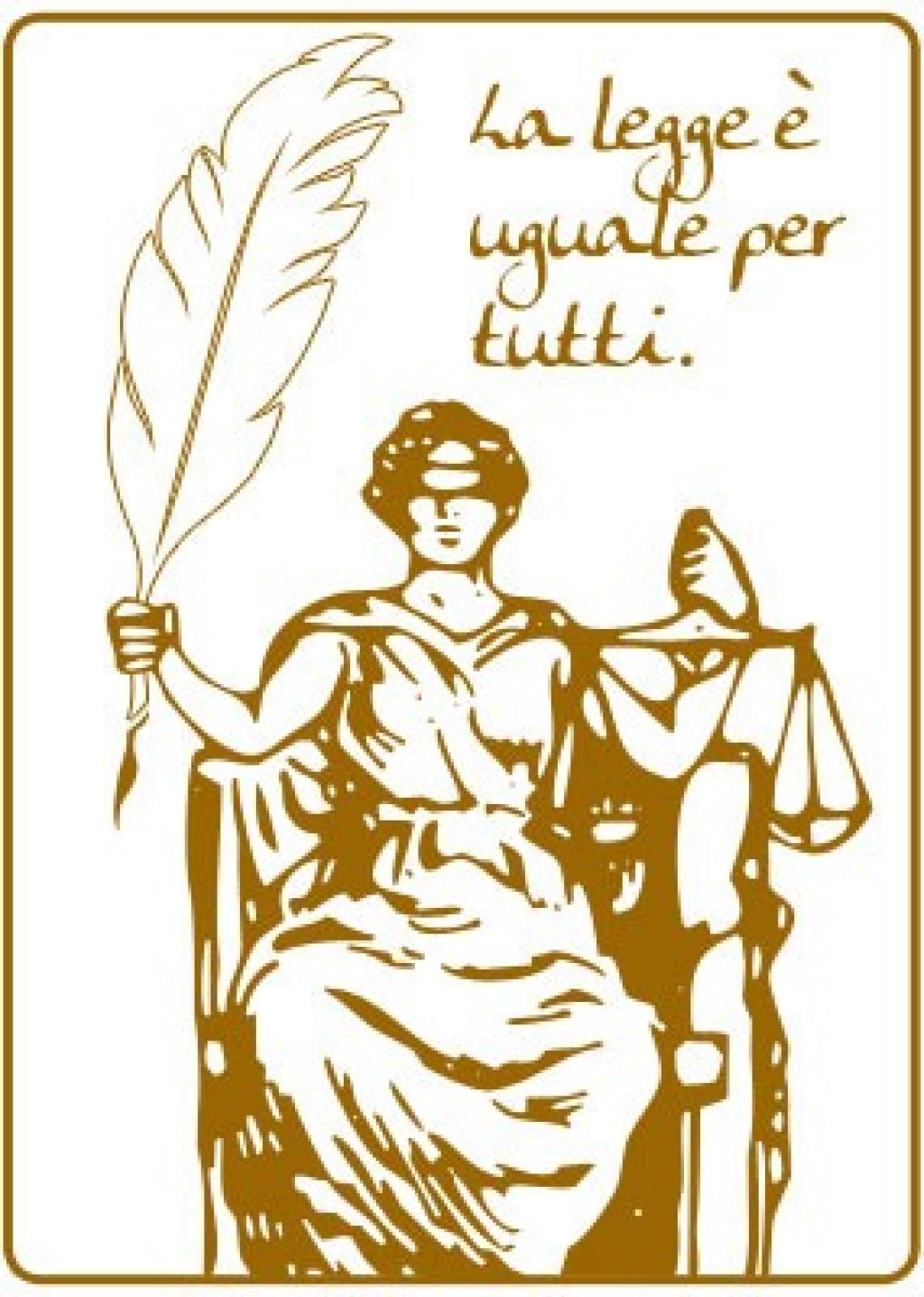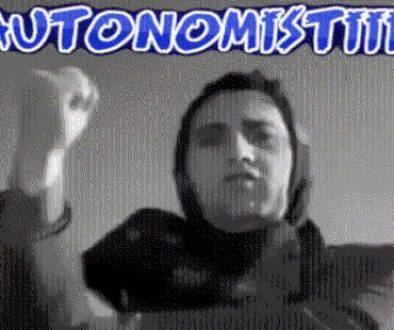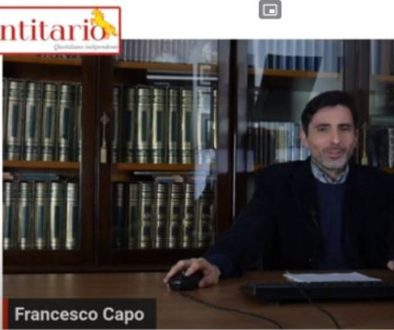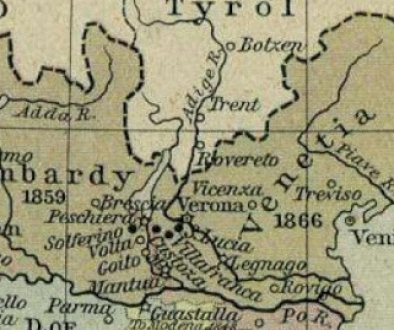Here because “the legal fiction” it does not find substantial application in our legal system of “civil law” strongly Napoleonic.
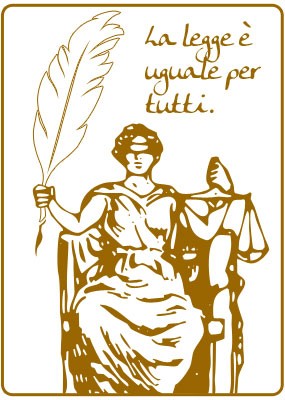
The difference between the legal fiction and other law enforcement mechanisms such as presumption, analogy and extensive interpretation.
In practice, a distinction must be made between law and reality and at the end the text concludes by saying that “in reality, then, fictio helps as a remedium ultimum where the case is such that it does not allow the application of any current legislation; it is resorted to, therefore, to fiction when, not even in the process of extensive and analogical interpretation, a rule may come to be applicable to a given factual situation.“.
In fact, art. 2 of the Preleggi on “sources of law” he says that “The formation of laws and the issuance of government acts having the force of law are governed by constitutional laws.“
In other words, the hierarchy of sources is based on the Italian Constitution, which has the intrinsic principle that everything is allowed except what is forbidden. which has the intrinsic principle that everything is allowed except what is forbidden, which has the intrinsic principle that everything is allowed except what is forbidden.
which has the intrinsic principle that everything is allowed except what is forbidden “legal fiction” which has the intrinsic principle that everything is allowed except what is forbidden. which has the intrinsic principle that everything is allowed except what is forbidden.
which has the intrinsic principle that everything is allowed except what is forbidden.
which has the intrinsic principle that everything is allowed except what is forbidden “which has the intrinsic principle that everything is allowed except what is forbidden” which has the intrinsic principle that everything is allowed except what is forbidden, which has the intrinsic principle that everything is allowed except what is forbidden, which has the intrinsic principle that everything is allowed except what is forbidden “which has the intrinsic principle that everything is allowed except what is forbidden” which has the intrinsic principle that everything is allowed except what is forbidden.
which has the intrinsic principle that everything is allowed except what is forbidden (EU), something authorized by various sentences of the Constitutional Court .
The state has made a norm , an Italian law, implementation of EU rules, says they prevail over Italian law, in particular, EU regulations directly prevail (which disapply the Italian law if in conflict) and in some cases also the EU Directives which would instead be framework laws.
For this mechanism of accession to the EU, Italy no longer manages the currency, the defence, a part of justice, not even borders and immigration, as well as the movement of people. For example EU citizens can apply and vote in any EU city where they reside, and they can reside anywhere in the EU.
This is not known by many alleged politicians, in fact, for example, they do not know that one cannot leave the Euro while remaining in the European Union, Why “The Union has a currency and this currency is the Euro”. E’ It is true that there are EU states that do not have the euro, but in fact they are managed by the ECB and will be abandoned in the future.
However, with the Lisbon Treaty of 2009 even the EU has given up part of its sovereignty as it joined the European Council. The latter is the body that recognizes and regulates human rights and the rights of minorities. The rules of the Council of Europe prevail over those of the EU. We must not confuse the Council of Europe with the European Council.
Finally, the rules of the UN, as they have been ratified directly by Italy but also by other EU states, are part of the “Community acquis” o common law of EU states.
In fact, other special treaties such as that of NATO prevail over all these norms.
Leaving aside the latter, we can therefore substantially trace the hierarchy of sources in current Italian law :
1) Norms of the Council of Europe, (CEDU, OVIEDO etc.)
2) European Union standards, in particular the regulations
3) Italian Constitution and Constitutional rules
4) UN rules when ratified and enforced
5) Laws of the State and resolutions of the “Special authorities” according to law
6) Regional Norms (and autonomous provinces) in exclusive or implementing matters in concurrent matters
7) Provincial Norms
8) Uses and Customs
When it is not possible to solve a specific case in the light of this enormous mass of laws, When it is not possible to solve a specific case in the light of this enormous mass of laws, When it is not possible to solve a specific case in the light of this enormous mass of laws, When it is not possible to solve a specific case in the light of this enormous mass of laws.
When it is not possible to solve a specific case in the light of this enormous mass of laws “legal fiction” When it is not possible to solve a specific case in the light of this enormous mass of laws, When it is not possible to solve a specific case in the light of this enormous mass of laws (When it is not possible to solve a specific case in the light of this enormous mass of laws) When it is not possible to solve a specific case in the light of this enormous mass of laws, When it is not possible to solve a specific case in the light of this enormous mass of laws “rules” When it is not possible to solve a specific case in the light of this enormous mass of laws.
When it is not possible to solve a specific case in the light of this enormous mass of laws “legal fiction” When it is not possible to solve a specific case in the light of this enormous mass of laws, When it is not possible to solve a specific case in the light of this enormous mass of laws.
When it is not possible to solve a specific case in the light of this enormous mass of laws, for example, there are those who believe that there is a law that says that if a child is registered in capital letters in the certificate at birth, for example, there are those who believe that there is a law that says that if a child is registered in capital letters in the certificate at birth; for example, there are those who believe that there is a law that says that if a child is registered in capital letters in the certificate at birth://for example, there are those who believe that there is a law that says that if a child is registered in capital letters in the certificate at birth , for example, there are those who believe that there is a law that says that if a child is registered in capital letters in the certificate at birth. for example, there are those who believe that there is a law that says that if a child is registered in capital letters in the certificate at birth, for example, there are those who believe that there is a law that says that if a child is registered in capital letters in the certificate at birth, for example, there are those who believe that there is a law that says that if a child is registered in capital letters in the certificate at birth .
In practice, the interpretation of facts and reality are not admissible when they are not compatible with the provisions of the law, and legal fictions or customs do not prevail.
This type of trivial and basic errors are avoided if before studying the specific facts you study the relevant rules, and if before these the organization of the rules is studied, exactly, the hierarchy of sources.
So basically , if you want to cultivate the law, it is necessary to start from a good manual on human rights that gives a reference framework of the limits that the laws can have. Then you can proceed to a manual of constitutional law to understand the Italian framework, and one of European law that now prevails.
However, if the intention is to question the sovereignty of a state, for example, we want to pursue the self-determination of a people (which is governed by international laws) obviously it is necessary to study one or more manuals of international law, of “individual” ) because states don't joke about this, you really risk the heavy jail.
Finally, there are those who believe that one is possible “individual self-determination”: even a child understands that no state can legally predict such a thing, therefore I recommend that you study the civil and criminal procedures carefully to understand how the state works, and above all the Criminal Code.
But above all, verify that it is a hoax for which the states are a corporation, at least until they are declared as such by law
